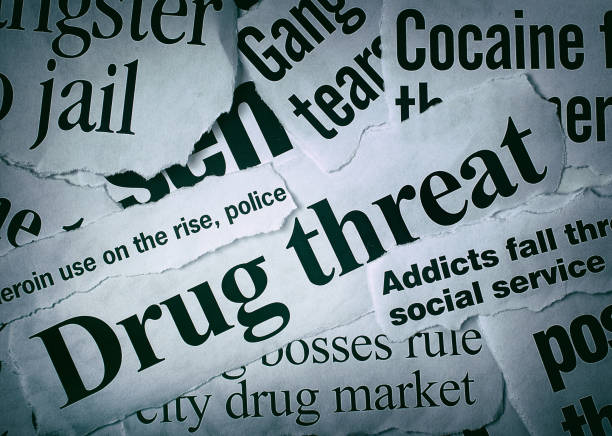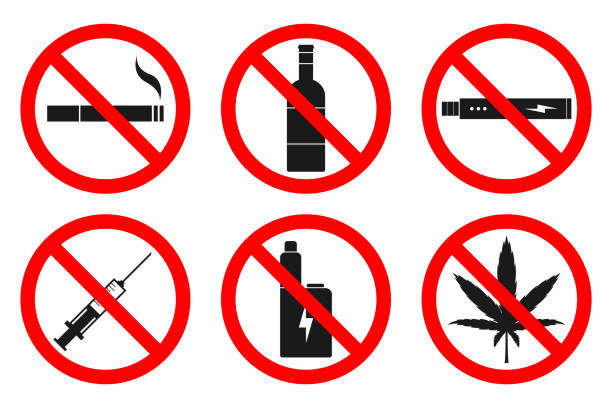Hello hivers,How are you all?This article I will explore the roots of drug prohibition and the War on Drugs, the effects of the policies, and the debate surrounding drug legalization. It will also discuss the current state of the War on Drugs and the direction of the future.
The history of drug prohibition and the War on Drugs can be broken down into three main periods: the early prohibition, the mid-century prohibition, and the modern prohibition. The early prohibition began with the founding of the Federal Bureau of Narcotics in 1930 and lasted until the 1950s. This was a time of very heavy regulation and prohibition of drugs, particularly cannabis. However, the era was mostly shaped by one piece of legislation: The 1937 Marijuana Tax Act. The mid-century prohibition began in the 1950s and lasted until the 1970s. This was the era of the “greatest generation.” Drugs were considered a threat to the American way of life. The Golden Age of Television helped to make the War on Drugs a household issue as programs like Dragnet and Maverick brought the dangers of drugs to the living room. The modern prohibition began in the 1970s and continues to this day. It was prompted by a new social movement and the rise of a new recreational drug: crack cocaine.Reference Source
And at the start of the 20th century, drugs were an accepted part of mainstream culture. They were used in patent medicines, and alcohol was an accepted part of daily life. However, concern over the health effects of narcotics, cocaine, and other drugs led to a rise in anti-drug sentiment. In 1914, the Federal Government passed the Harrison Narcotics Tax Act, which required a license to produce or sell narcotics or cocaine. This act was passed in response to rising anti-drug sentiment. It was the first real attempt at drug prohibition, and it had very significant implications for the future of drug policy. In many respects, it marked the start of the War on Drugs. Prior to this act, there had been no concerted effort to control the use of drugs.

The next major piece of legislation came in the form of the Comprehensive Drug Abuse Prevention and Control Act of 1970. It is often referred to as the Controlled Substances Act (CSA). This act was the first piece of legislation to separate drugs into different categories based on their danger. It created five categories of drugs, called schedules, and set up regulatory controls. The schedules determined how the drugs could be used and dispensed, as well as penalties for violations of the act. The Controlled Substances Act had a major impact on the War on Drugs. It continued the trend towards prohibition by increasing penalties for drug-related crimes. It also reoriented policy towards combating drug use rather than managing the drug trade.
Effects of Drug Prohibition & the War on Drugs
The War on Drugs has had significant consequences for the United States. It has impacted law enforcement, the criminal justice system, public health, and America’s international reputation. - Law Enforcement - The War on Drugs has put a significant strain on law enforcement. Drug-related arrests account for a significant proportion of arrests in the US, and they are the most likely to result in a felony charge. The majority of drug-related arrests are for possession, which places a significant burden on law enforcement agencies. - Criminal Justice System - The War on Drugs has had a significant impact on the criminal justice system. The number of people in prison for drug-related crimes has increased significantly since the launch of the War on Drugs. The number of people in prison for drug-related crimes increased by 779% between 1980 and 2014. While the majority of those in prison are serving time for violent crimes, an increasing proportion of people are being sent to jail for drug-related crimes. The number of people in prison for drug-related crimes has increased significantly in recent years, as the War on Drugs has continued. - Public Health - The War on Drugs has also had a significant impact on public health. It has contributed to the opioid crisis and placed a significant burden on healthcare systems. Drug users tend to suffer from a range of health conditions and suffer higher mortality rates than the rest of the population. However, the War on Drugs has made it difficult for drug users to access healthcare. - America’s International Reputation - Finally, the War on Drugs has had a significant impact on America’s international reputation. It has contributed to the formation of a negative stereotype about American culture and has led to a loss of credibility in the eyes of other countries.
Debate Surrounding Drug Legalization
The War on Drugs has been heavily debated, with many people calling for drug legalization. Legalization would involve removing the criminal penalties associated with drug possession and use. Proponents of drug legalization argue that it would significantly reduce the burden on law enforcement and the criminal justice system. Legalization would also have positive implications for public health. It would significantly reduce the burden on healthcare systems associated with the opioid crisis, HIV/AIDS rates, and other negative effects of drug use. It would also make it easier for drug users to access healthcare.
Current State of the War on Drugs
The War on Drugs has had a significant impact on American society. It has helped to shape modern culture and is still very much a part of daily life. However, the War on Drugs is not as effective as it once was. It has resulted in significantly less drug availability and decreased profit margins for drug traffickers. The use of drugs has also remained constant or even increased in some cases, although it is difficult to determine precisely due to the nature of illegal substances. Some critics have argued that the War on Drugs is a failure and should be abandoned in favor of a new approach. Regardless of the future of the War on Drugs, it will continue to shape American society for years to come.

The Direction of the Future
The War on Drugs has had a significant impact on American society. It has also been a complex and controversial issue, with critics arguing that it has been a costly and ineffective policy. Despite the significant controversy surrounding the War on Drugs, it has had a significant impact on American society and will continue to do so in the future.
https://research.dom.edu/the-war-on-drugs--history-policy-therapeutics/history
https://drugpolicy.org/issues/brief-history-drug-war
https://www.healthline.com/health-news/war-on-drugs-a-failure-un-concludes
https://en.m.wikipedia.org/wiki/War_on_drugs
Thanks for your contribution to the STEMsocial community. Feel free to join us on discord to get to know the rest of us!
Please consider delegating to the @stemsocial account (85% of the curation rewards are returned).
Thanks for including @stemsocial as a beneficiary, which gives you stronger support.